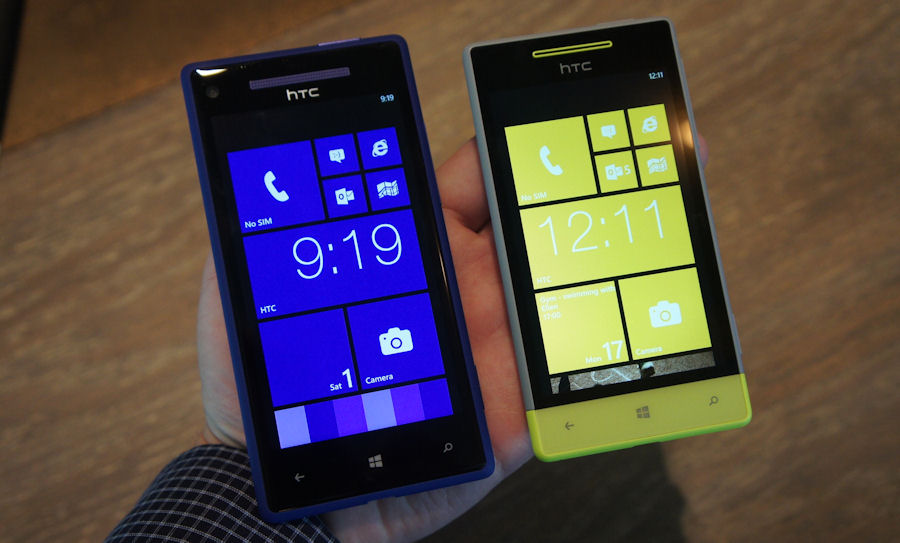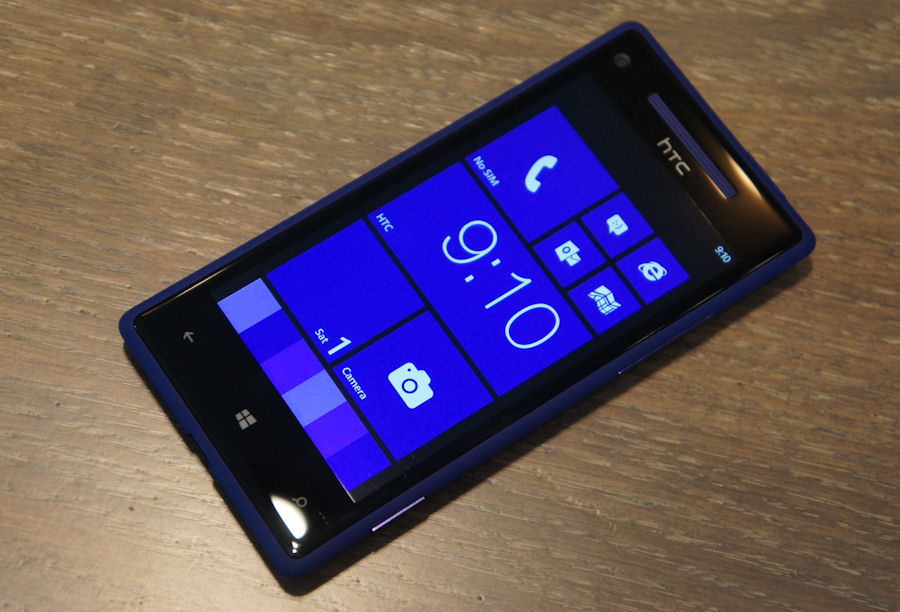Smartphones are personal devices, and there's nothing more personal than music. If we were to sit the All About team down and have a look at the respective contents of the music+video media hub, we'd find vastly differing tastes - we might not have a single tune in common on the handsets - but we'd all agree that music is a key part of the smartphone equation.
That's why HTC's focus on music at today's launch intrigues me. It's an area that is really easy for people to understand when they are deciding which device to buy, and it's easy to demonstrate to their friends.
At the launch of the Lumia 920 and Lumia 820, Nokia threw down the gauntlet with imaging (an area HTC have looked at before with the 16 megapixel HTC Titan 2). No matter that the PR was a little bit bungled (ahem), the message was clear - if you're looking for a smartphone that takes the best picture, you want a Nokia.
HTC are positioning themselves as the handset for the greatest audio quality, specifically around music. That's a really easy point to make for Point of Sale staff - "do you like your music? You want an HTC, with the extra amplifier?"

It's rare for me to have to turn my Windows Phone up to '30' to hear my music (and if I did, the EU has limited the maximum dB value that a personal music player can push out) so the twin amplifiers won't have a major impact on the 'loudness' of any music, but the increased voltage will deliver in two areas. The first is in the richness of the music, although the comparisons on that are going to have to wait till we get a sample unit and actually listen to the sound profile.
The second is that the increased voltage (up from the expected 0.5V from a smartphone jack to around 2.55V) will mean the HTC 8X will be able to power a wider range of audio accessories through the 3.5mm jack, potentially powering portable speakers with little audio distortion on the signal.
On top of this, the 8X and 8S both come with the 'Beats' audio software that HTC have pioneered on their Android based handsets. This marks the Windows Phone debut for the audio processing software, which constantly analyses the music playing in conjunction with the audio device, and alters the output for the best sound.
Think of it as an 'active' graphical equaliser that will always try to improve the music and you'll understand what's going on here. Audio purists might be aghast at the idea of constantly shifting tone and bass, but in day-to-day use this will lend a fullness and richness to the audio output of HTC's Windows Phone 8 handsets. Personally, I'm intrigued to listen to something like Tubular Bells through all this audio technology.
There's another amplifier as well, for the loudspeaker on the 8X. This takes the increased voltage from the first amplifier and moulds it so it is best suited to the built-in speaker (presumably with a bit of a hand from the Beats software).

The result is hopefully a phone that provides the best "look at this YouTube video" moment down the pub. And when you can demo a phone by playing a musical track, and switching Beats on and off, that's a tangible demo of HTC's new smartphones, and one that is going to stick in the minds of people who experience it.
That's where HTC can stand out in the marketplace, and that's good. They desperately need to 'win' in a smartphone category. Design belongs to Apple, Imagery belongs to Nokia, the 'jury prize' of the biggest boy on the block has the Samsung name on it... ask someone on the street which is the best phone for music, and right now there may not be a clear answer.
HTC can be that answer. As one noted mobile watcher pointed out to me today, HTC started out as a white label manufacturer, then moved into the low-end of consumer devices. Now it needs to step up and be regarded as a leader. They started that process with the One range before the Samsung Galaxy S3 took pretty much all the plaudits as the 2012 Android device of choice.
Windows Phone 8 gives them the opportunity to stand up as a giant in the smartphone industry. It shows off their design and ability to equal others manufacturers in the specs and the presentation. And it delivers a clear selling point to attract customers to the HTC platform. This is HTC's moment, they've got the hardware and the software... can they get the respectability to match?
We'll find out soon.
